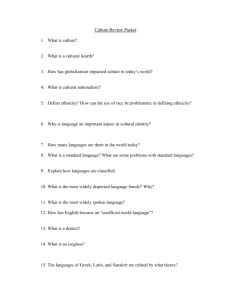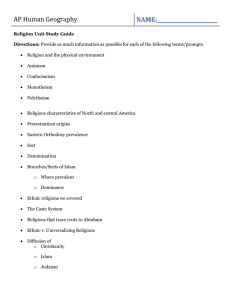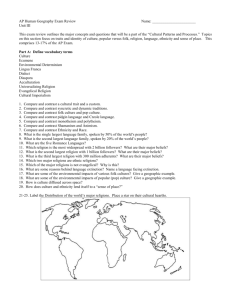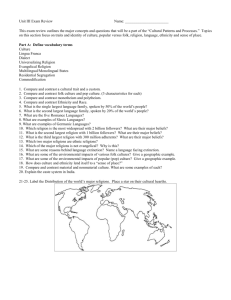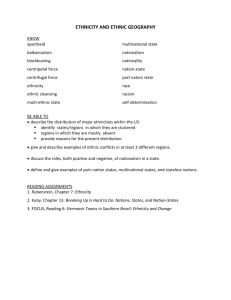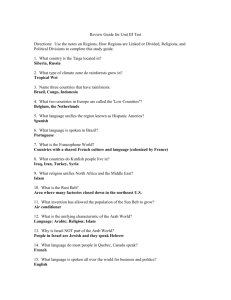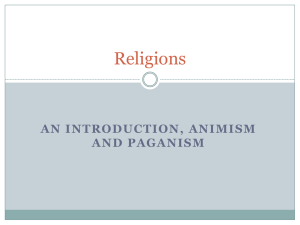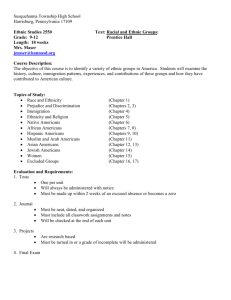Unit 3 - Vocab and Essential Questions copy
advertisement
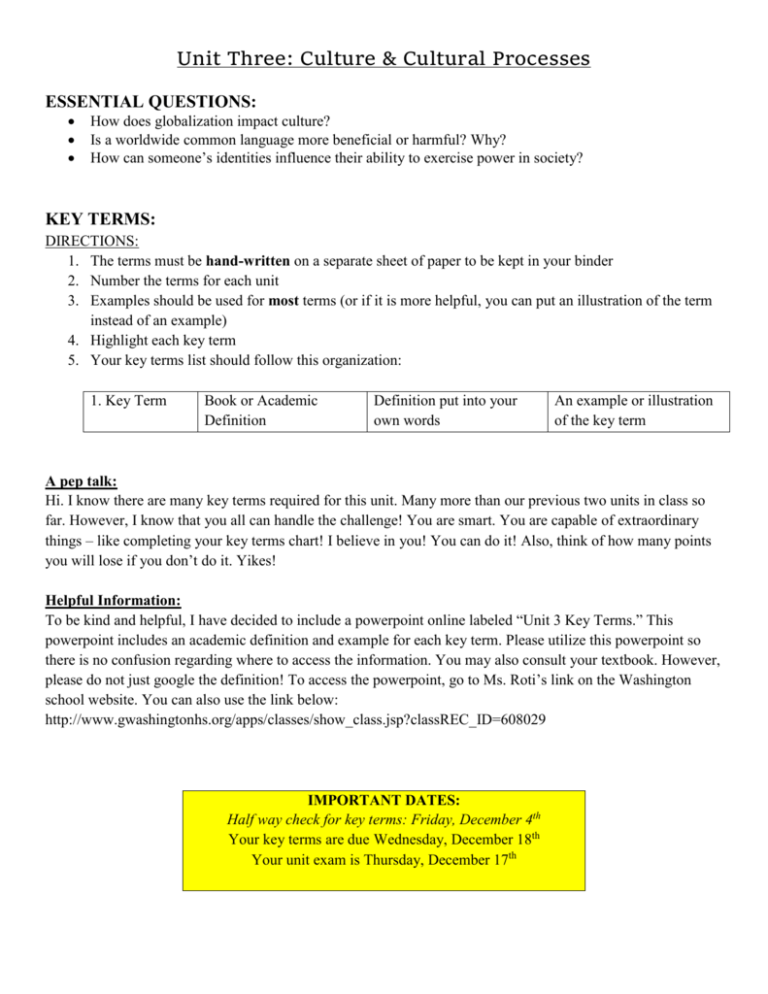
Unit Three: Culture & Cultural Processes ESSENTIAL QUESTIONS: How does globalization impact culture? Is a worldwide common language more beneficial or harmful? Why? How can someone’s identities influence their ability to exercise power in society? KEY TERMS: DIRECTIONS: 1. The terms must be hand-written on a separate sheet of paper to be kept in your binder 2. Number the terms for each unit 3. Examples should be used for most terms (or if it is more helpful, you can put an illustration of the term instead of an example) 4. Highlight each key term 5. Your key terms list should follow this organization: 1. Key Term Book or Academic Definition Definition put into your own words An example or illustration of the key term A pep talk: Hi. I know there are many key terms required for this unit. Many more than our previous two units in class so far. However, I know that you all can handle the challenge! You are smart. You are capable of extraordinary things – like completing your key terms chart! I believe in you! You can do it! Also, think of how many points you will lose if you don’t do it. Yikes! Helpful Information: To be kind and helpful, I have decided to include a powerpoint online labeled “Unit 3 Key Terms.” This powerpoint includes an academic definition and example for each key term. Please utilize this powerpoint so there is no confusion regarding where to access the information. You may also consult your textbook. However, please do not just google the definition! To access the powerpoint, go to Ms. Roti’s link on the Washington school website. You can also use the link below: http://www.gwashingtonhs.org/apps/classes/show_class.jsp?classREC_ID=608029 IMPORTANT DATES: Half way check for key terms: Friday, December 4th Your key terms are due Wednesday, December 18th Your unit exam is Thursday, December 17th Culture 1. Culture 2. Culture Trait 3. Culture Region 4. Culture Complex 5. Cultural Identity 6. Culture system 7. Cultural Convergence 8. Cultural Imperialism 9. Cultural Isolation 10. Material Culture 11. Nonmaterial Culture 12. Barriers to Diffusion 13. Culture Hearth 14. Folk Culture 15. Popular Culture Language 16. Language 17. Dialect 18. Accent 19. Idiom 20. Vernacular 21. Lingua franca 22. Pidgin language 23. Isogloss 24. Monolingualism 25. Multilingualism 26. Creolized Language 27. Language Branch 28. Language family 29. Standard English/Received Pronunciation 30. Official Language 31. Language Isolation 32. Language Extinction 33. Language Divergence 34. Language Convergence 35. Linguistic Refuge 36. Ideograms 37. Language Pollution Religion 38. Religion 39. Universalizing religions 40. Ethnic religions 41. Monotheism 42. Animism 43. Polytheism 44. Traditional religions 45. Syncretic religions 46. Hinduism 47. Karma 48. Reincarnation 49. Caste system 50. Untouchables 51. Vedas 52. Buddhism 53. Siddhartha 54. Four Noble Truths 55. Pali Cannon 56. Judaism 57. Diaspora 58. Torah 59. Kosher 60. Synagogue 61. Christianity 62. Jesus 63. Islam 64. Muhammad 65. Hajj 66. Qur’an 67. Mosque 68. Sharia 69. Confucianism 70. Taoism 71. Sikhism 72. African Traditional Religion 73. Jainism 74. Shinto 75. Baha’i Race/Ethnicity/Gender 76. Ethnicity 77. Ethnocentrism 78. Emergent Ethnicity 79. Resurgent identity 80. Assimilation 81. Acculturation 82. Ethnic Neighborhoods 83. Segregation 84. Ghettos 85. Ethnoburb 86. Ethnic island 87. Sex 88. Sexism 89. Gender 90. Gendered Spaces
